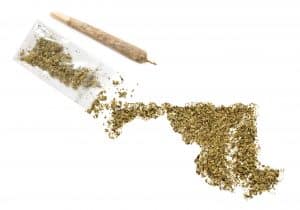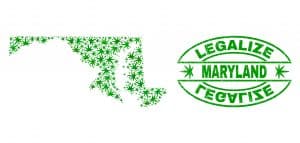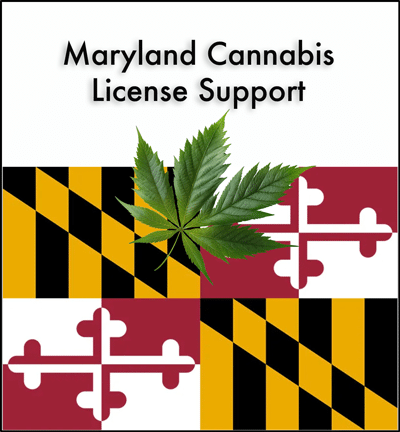Maryland Cannabis Operating Plan and SOPs
We have versions available for retail dispensaries, cultivation and processing license holders. These procedures cite the Maryland cannabis regulations (COMAR) codes and are ready to submit.
If the MCA requests any corrections, we make corrections for free and within 2 weeks.
Table of Contents
Introduction 3
Monitoring Progress 3
Cannabis Business Agents 5
Registration 5
Identification Cards 6
Termination 7
Safety Procedures 8
Armed Robbery SOP 9
Burglary SOP 10
Evacuation SOP 11
Medical Emergency SOP 12
Fire Emergency SOP 13
Earthquake SOP 13
Inclement Weather SOP 14
Flooding SOP 15
Power Outages SOP 15
Active Shooter SOP 16
Security Plan and Procedures 19
Securing Public vs. Operational Areas 19
Visitors Log 20
Securing the Premises 20
Securing the Premises SOP 21
Secure Premises Log 21
Preventing Theft and Diversion 22
Seed-to-Sale Tracking System 22
Diversion Prevention 22
Theft and Diversion Prevention SOP 23
Video Surveillance System 25
Alarm System 26
Security Equipment Maintenance SOPs 28
Completing the Security Equipment Maintenance Log 30
Recordkeeping SOP – Security Equipment Maintenance 31
Security Equipment Maintenance Log 31
Secure Storage 33
Storage Room Climate Log 37
Attempted Unauthorized Access Form 37
Security Personnel 38
Safety and Security Training 39
Training 40
Shoplifting Prevention Training 41
Training Methodologies 42
Minimizing Negative Community Impact 42
Effective Daily Operations 43
Opening and Closing Procedure 44
Opening Procedure 45
Closing Procedure 46
Security Log 46
Receiving Cannabis Products SOP 47
Packaging and Labeling 49
Cannabis Product Preparation on the Premises 50
Cleaning and Sanitation Log 51
Prohibited Packaging and Labeling 51
Packaging and Labeling Standards 52
Quality Assurance Checklists 52
Quality Control and Assurance 60
Verification of Lab Clearance SOP 62
Supplemental Quality Control Testing SOP 62
Storing Refrigerated Cannabis Products SOP 63
Environmental Conditions for Storage Room SOP 64
Safety and Quality Control for Storage Room SOP 64
Tracking Cannabis Products in Storage SOP 64
Complaints and Adverse Events 65
Recall SOP 66
Recall Communications Log 68
Recall Recovery Summary 70
Facility Sanitation 71
Facility Sanitation Log 73
Waste Disposal SOP 74
Waste Disposal Record 76
Age Verification SOP 77
Fraudulent Access Attempt Form 79
Retail Sales SOP 79
Medical Cannabis Accommodations 82
Cash Handling SOP 83
Cash Counting Form 86
Cash Transaction Record 87
Deposit Log 88
Seed-to-Sale Inventory Tracking System SOP 89
Inventory Tracking System Quality Assurance 90
Recordkeeping 91
Document Creation SOP 92
Document Modification SOP 93
Document Access SOP 95
Document Storage SOP 96
Document Security SOP 97
Document Destruction SOP 99
Contact Us Now to Preview these Procedures
The regulatory framework governing the cannabis industry in Maryland mandates stringent compliance with established protocols, making adherence to Cannabis Standard Operating Procedures (SOPs) imperative for license holders. Designed to ensure effective business operations, these SOPs address elements such as security, inventory control, and staff management. A comprehensive understanding and implementation of these procedures serve as the foundation for maintaining operational legality and efficiency. Hence, detailed SOPs are critical tools for licensees intending to navigate the complex landscape of regulatory requirements and maintain a successful, compliant cannabis operation within Maryland’s dynamic legal environment.
 Adherence to Maryland’s Cannabis Standard Operating Procedures (SOPs) is crucial for license holders aiming to comply with the state’s rigorous regulatory framework. These SOPs cover key operational areas, including security, inventory control, and staff management, providing a foundation for business legality and efficiency. Licensees must ensure their SOPs are up-to-date and align with current laws to prevent severe penalties such as fines or license revocation. Implementing comprehensive SOPs supports businesses in maintaining operational consistency and aids in meeting Maryland’s evolving legal and compliance standards, essential for successful cannabis operations.
Adherence to Maryland’s Cannabis Standard Operating Procedures (SOPs) is crucial for license holders aiming to comply with the state’s rigorous regulatory framework. These SOPs cover key operational areas, including security, inventory control, and staff management, providing a foundation for business legality and efficiency. Licensees must ensure their SOPs are up-to-date and align with current laws to prevent severe penalties such as fines or license revocation. Implementing comprehensive SOPs supports businesses in maintaining operational consistency and aids in meeting Maryland’s evolving legal and compliance standards, essential for successful cannabis operations.
Ensuring Compliance with Maryland Cannabis SOPs
Operating within the Maryland cannabis industry requires adherence to comprehensive standard operating procedures, which are crucial for navigating the complex legal landscape established under Maryland cannabis law. These standard operating procedures function as a critical safeguard, ensuring that every aspect of the operation stays within the boundaries of the law, thereby facilitating compliance with state regulations. Compliance is not optional; it is mandated by various versions of the state’s regulatory codes which evolve to address different facets of the industry, including cultivation, distribution, and retail sale.
 The implementation of meticulously crafted standard operating procedures guides businesses in maintaining operational consistency and quality control, which are essential for sustaining compliance. These operating procedures cover various elements such as security measures, inventory management, employee training, and customer interactions, each designed to fulfill specific compliance mandates. The effective integration of these standard operating procedures into daily operations ensures that employees are consistently aligned with regulatory requirements, providing additional assurance of compliance.
The implementation of meticulously crafted standard operating procedures guides businesses in maintaining operational consistency and quality control, which are essential for sustaining compliance. These operating procedures cover various elements such as security measures, inventory management, employee training, and customer interactions, each designed to fulfill specific compliance mandates. The effective integration of these standard operating procedures into daily operations ensures that employees are consistently aligned with regulatory requirements, providing additional assurance of compliance.
Why SOPs are Essential for Cannabis Businesses
SOPs are crucial as they provide a structured approach to managing various aspects of a cannabis business, ensuring every task is conducted systematically to uphold quality and compliance standards. When dealing with cannabis products, the importance of having predetermined operating procedures cannot be overstated, especially given the highly regulated nature of this industry.
For cannabis businesses, having well-documented SOPs is not just about maintaining order; it is about ensuring that every aspect of operations ranging from retail to inventory management is effectively managed. Proper inventory management is central to maintaining a steady flow of cannabis products, ensuring that popular products are always in stock, and avoiding overstock situations that may result in unnecessary storage costs. This level of inventory management requires a precise standard operating procedure to track and manage stock effectively.
 Operating a cannabis business without a set of comprehensive SOPs is akin to navigating uncharted waters without a map. The key to successful management lies in implementing these procedures from the outset, ensuring that every facet of the business is aligned with industry standards and regulatory expectations. When cannabis businesses invest in creating and adhering to well-crafted SOPs, they lay the foundation for a thriving enterprise that not only meets but exceeds the expectations of customers and regulators alike. Thus, SOPs are not merely a tool for compliance but a cornerstone of effective cannabis business management.
Operating a cannabis business without a set of comprehensive SOPs is akin to navigating uncharted waters without a map. The key to successful management lies in implementing these procedures from the outset, ensuring that every facet of the business is aligned with industry standards and regulatory expectations. When cannabis businesses invest in creating and adhering to well-crafted SOPs, they lay the foundation for a thriving enterprise that not only meets but exceeds the expectations of customers and regulators alike. Thus, SOPs are not merely a tool for compliance but a cornerstone of effective cannabis business management.
Essential Documents and SOPs Cannabis Business Compliance
In Maryland, the integration of SOPs into everyday operations acts as the backbone of ensuring legal and efficient dispensary and cultivation processes. From the confirmation of employee credentials to inventory management, these documents provide the necessary framework that guarantees your dispensary remains within the legal boundaries set by both local and federal regulations. The state’s regulatory agency (MCA) mandates that each business must submit dispensary standard operation procedures encompassing everything from employee, operational processes to sale procedures—ensuring every transaction is accounted for and managed correctly.
These dispensary SOPs should be viewed as more than a statutory requirement; they are a critical component of your dispensary’s holistic management strategy.
Having a well-structured set of standard operating procedures in place greatly affirms your dispensary’s commitment to adhering to legal requirements. Essential procedures should address compliance protocols, regular audits, and ensure that all operational paperwork aligns with Maryland’s legislative requirements. Having regulatory-compliant SOPs assists not only in satisfying specific Maryland licensing requirements but also in maintaining up-to-date operational protocols that can adapt to any procedural changes introduced by governmental agencies or regulatory bodies.

